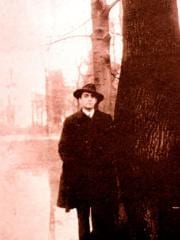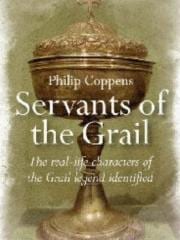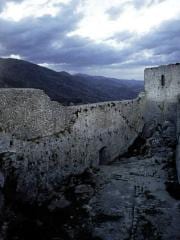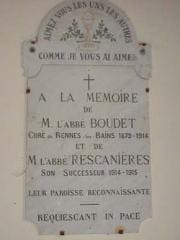Philip Coppens
Otto Rahn: author, poet, Grail seeker, SS officer
In February 2007, Montserrat Rico Góngora published “The Desecrated Abbey”, in which he claimed that Heinrich Himmler, Hitler’s second-in-command and head of the Nazi SS, had made a secret wartime mission to an abbey in Spain, in search of the Holy Grail. Góngora even interviewed Andreu Ripol Noble, a former monk and the only person that spoke German, who was ordered by his superiors to guide Himmler during the visit in 1940. Ripol related that Himmler came to Montserrat inspired by Richard Wagner’s opera “Parsifal”, which mentions that the Holy Grail could be kept in “the marvellous castle of Montsalvat in the Pyrenees” – the mountain range that marks the border between France and Spain.
Servants of the Grail: The Real-Life Characters of the Grail Legend Identified By Philip Coppens
The Grail story is a Western European rendering of a pre-Christian Graeco-Egyptian religious story on how to live a pious life so that the soul will be able to meet God.
Published on: 2009-03-16
240 pages
ISBN-10: 1846941555
ASIN: B005MZC3RQ
The wooden book of Montségur
In the early 20th century, a series of palm leaves, containing anomalous writing, were apparently discovered within a hidden cache of the walls of the Cathar castle of Montségur. Though without any intrinsic value, the “wooden book” – as it became known – would become the centrepiece of the esoteric and metaphysical community; its discoverers even labelled it “the Oracle” and said it was able to contact the hidden masters of Agharta.
Montségur is seen as the final stronghold of the Cathar faith, a bastion of true devotion besieged by the worldly ambitions of the papal troops. In March 1244, the Cathars that had been locked inside the castle for months finally surrendered; approximately 220 were burned en masse in a bonfire at the foot of the pog when they refused to renounce their convictions.
Rescanières: another unsolved death?
A memorial slab
Stand in the covered hallway that is in front of the church of Rennes-les-Bains, and you will find that the community indeed had respect – more so than for the other priests that served the community, it seemed – for Boudet. That in itself should be remarkable. However, there is also another name on the memorial slab: Rescanières.
The interesting thing is that Rescanières only served as priest of Rennes-les-Bains for one year: 1914 to 1915. It left him little time to leave an impression, it seems, but apparently he did. And the reason why and how he did so, has to do with his sudden, unexpected – and premature death: Rescanières was only 47 years old when he died. Might it therefore come as a surprise that some believe that he was murdered?
Karl Hammer-Kaatee published “Satans Lied: De Jacht van de CIA op Jezus. Waargebeurd verhaal”
666 = Satan’s Song?
Not just any other Rennes-le-Château< book?
In September 2006, Dutch author Karl Hammer-Kaatee published “Satans Lied: De Jacht van de CIA op Jezus. Waargebeurd verhaal”, or “Satan’s Song. The CIA Hunt For Jesus. A true story.”
Though written in the format of a novel, the book claimed to be based on facts. The publication itself does not list an official classification (e.g. fiction) on the book itself, hence leaving one guessing as to which category it fell into.
The book claims to be the account of one “Tom R.”, who told his life’s story to Hammer in the mid 1990s. After Tom’s death, Hammer transformed the notes of a man’s life into the present book.






Commenti recenti
13 anni 17 settimane fa
13 anni 17 settimane fa
13 anni 17 settimane fa
13 anni 17 settimane fa
13 anni 20 settimane fa
13 anni 26 settimane fa